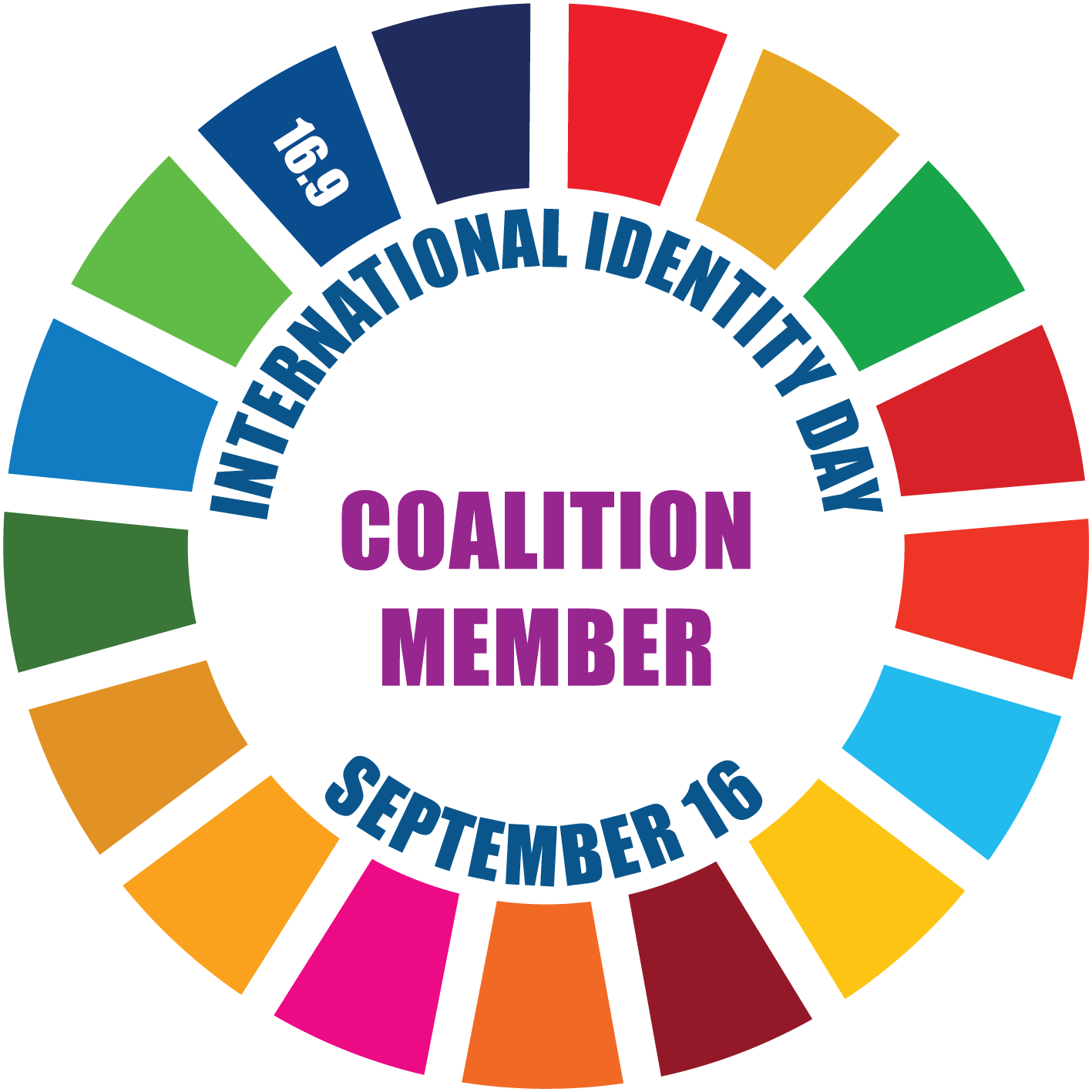Past Events
2022
German TeleTrusT Biometrics Working Group
| Date: | 2022-12-06 (10:00-17:00 CEST) | Location: | Hybrid meeting: Bundesverband Deutscher Banken, Burgstr. 28, 10178 Berlin, Germany with the option for virtual participation. Please indicate in the comment field of your registration either "on-site" or "remote" |
|---|
Organizer: German TeleTrusT Biometrics Working Group in cooperation with the European Association of Biometrics
Attendance is free of charge, Registration is required by November 21st.
Please note that most presentations will be held in german language!
Program
Forensic Facial Examination – Transparency and Uniformity in Casework
| Date: | 2022-11-29 (12:30-13:30 CEST) | Location: | Zoom |
|---|
Organizer: European Association for Biometrics (EAB) Attendance is free of charge but registration is required. Registered participants will receive dial-in credentials the morning of the event.
Speakers: Dr Trine Edvardsen
Program
The International Face Performance Conference (IFPC) 2022
| Date: | 2022-11-15 - 2022-11-17 | Location: | Virtual Event |
|---|
Organizer: National Institute for Standards and Technology (NIST) in collaboration with the Department of Homeland Security’s Science and Technology Directorate (DHS S&T) and European Association for Biometrics (EAB)
After registration, a link to access the conference will be sent in a separate email a few days before the conference starts.
Program (ext.)
User-Centric Biometrics - Securing Privacy & Compliance in Adopting Identity Proofing and Verified Credentials Use Cases
| Date: | 2022-11-15 (12:30-13:30 CEST) | Location: | Zoom |
|---|
Organizer: European Association for Biometrics (EAB)
Speakers: Dr Erik Guoqiang Li
Program
Hybrid Biometric Template Protection: Resolving the Agony of Choice between Bloom Filters and Homomorphic Encryption
| Date: | 2022-11-01 (12:30-13:30 CEST) | Location: | Zoom |
|---|
Organizer: European Association for Biometrics (EAB) Attendance is free of charge but registration is required. Registered participants will receive dial-in credentials the morning of the event.
Speakers: Amina Bassit
Program
Anything with a Look: a Self-Sovereign Decentralised Vision of Authentication
| Date: | 2022-10-18 (12:30-13:30 CEST) | Location: | Zoom |
|---|
Organizer: European Association for Biometrics (EAB) Attendance is free of charge but registration is required. Registered participants will receive dial-in credentials the morning of the event.
Speakers: Pedro Torres
Program
Norwegian Biometric Forum Meeting
| Date: | 2022-10-13 (09:30-15:00 CEST) | Location: | NTNU, Rådhusgata 27, 0158 Oslo |
|---|
Organizer: Norwegian Biometric Forum in cooperation with the European Association for Biometrics
Attendance is free of charge, Registration is required
Program
UK Home Office Biometric Self-Enrolment Technology – Findings from Recent Large Scale Trials and Future Plans
| Date: | 2022-10-04 (12:30-13:30 CEST) | Location: | Zoom |
|---|
Organizer: European Association for Biometrics (EAB) Attendance is free of charge but registration is required. Registered participants will receive dial-in credentials the morning of the event.
Speakers: Graham Camm, Jordan Webster
Program
BIOSIG 2022 – 21st International Conference of the Biometrics Special Interest Group
| Date: | 2022-09-14 (19:30 CEST) - 2022-09-16 (15:45 CEST) | Location: | Fraunhofer IGD, Fraunhoferstraße 5, 64283 Darmstadt, Germany |
|---|
Organizer: CAST in cooperation with BSI, EAB, JRC, NBL, ATHENE, Hochschule Ansbach, Fraunhofer IGD, IET Biometrics Journal, Biometric Update, the special interest group BIOSIG of the Gesellschaft für Informatik e.V. (GI), technically co-sponsored by IEEE To ensure the health and safety of all participants attending BIOSIG in Darmstadt, participants are required to perform a self-test at the porter’s office of Fraunhofer IGD. Self-tests will be provided on site.
European Biometrics Max Snijder, Research, and Industry Awards 2022
| Date: | 2022-09-14 (16:30-21:30 CEST) | Location: | Hybrid event (virtual and physical) at Fraunhofer IGD, Fraunhoferstraße 5, 64283 Darmstadt, Germany as well as Virtual Conference |
|---|
Organizer: European Association for Biometrics (EAB) Attendance is free of charge but registration is required.Registered participants will receive dial-in credentials the evening before the event via email. To ensure the health and safety of all participants attending the Awards in Darmstadt, participants are required to perform a self-test at the porter’s office of Fraunhofer IGD. Self-tests will be provided on site. Please send and email to secretariat if you have any questions or concerns.
Program
12th EAB General Assembly
| Date: | 2022-09-13 (17:00-18:00 CEST) | Location: | Hybrid event (virtual and physical) at Fraunhofer IGD, Fraunhoferstraße 5, 64283 Darmstadt, Germany as well as Virtual Conference |
|---|
Organizer: European Association for Biometrics (EAB) This event is for EAB members only. To ensure the health and safety of all members attending the General Assembly in Darmstadt, members are required to perform a self-test at the porter’s office of Fraunhofer IGD. Self-tests will be provided on site. Please send and email to secretariat if you have any questions or concerns.
Attendance is free of charge but registration is required.
Registered participants will receive dial-in credentials the evening before the event via email.
Program
EAB-RPC 2022 – EAB Research Projects Conference 2022
| Date: | 2022-09-12 (14:45 CEST) - 2022-09-14 (16:00 CEST) | Location: | Fraunhofer IGD, Fraunhoferstraße 5, 64283 Darmstadt, Germany |
|---|
Organizer: The European Association for Biometrics (EAB) with the contribution of eu-LISA through its Governance and Capabilities Unit, the support of DG HOME of the European Commission, Fraunhofer IGD and Halmstad University. To ensure the health and safety of all participants of the conference, all participants are required to perform a daily self-test. The first to be conducted at the porter’s office of Fraunhofer IGD. Self-tests will be provided on site. Please send and email to secretariat if you have any questions or concerns. Fees are non-refundable as from 7 days before the start of the event. Note: If you are not yet an EAB-member, please consider to register for membership first (starting from 95,00 € per year). You then can register for the EAB-RPC as an EAB-member for only 290,00 € instead of 435,00 €, which means an overall saving of 50,00 €!
Program
German TeleTrusT Biometrics Working Group
| Date: | 2022-09-12 (09:30-14:30 CEST) | Location: | Fraunhofer IGD, Fraunhoferstraße 5, 64283 Darmstadt, Germany |
|---|
Organizer: German TeleTrusT Biometrics Working Group in cooperation with the European Association of Biometrics Attendance is free of charge but registration is required.
Program
Workshop Digital Face Manipulation & Detection
| Date: | 2022-07-12 (14:00 CEST) - 2022-07-13 (19:00 CEST) | Location: | Virtual Conference; access data will be sent to the participants short before the event. |
|---|
Organizer: European Association for Biometrics (EAB) Organizing Committee: Christian Rathgeb, Ruben Tolosana, Ruben Vera-Rodriguez, & Christoph Busch Fees are non-refundable as from 7 days before the start of the event. Please use the PayPal option at checkout.
Students have free access if they have a Students membership with the EAB. Please include your university email for verification purposes.
All times are in Central European Summer Time (CEST).
Program
Artificial Intelligence Act Workshop 2022
| Date: | 2022-06-14 - 2022-06-15 | Location: | This will be a virtual event |
|---|
Organizer: European Association for Biometrics (EAB) & DIN Organizing Committee: Dinusha Frings, Alexander Goschew, Catherine Jasserand, Rosana Ribeiro Attendance is free of charge but registration is required. Registered participants will receive dial-in credentials the evening before the event via email.
Program
“I Know You By Heart: The Past and Future of ECG Biometrics”
| Date: | 2022-05-31 (12:30-13:30 CEST) | Location: | Big Blue Button |
|---|
Attendance is free of charge but registration is required. Registered participants will receive dial-in credentials the morning of the event.
Speakers: João Ribeiro Pinto
Program
Norsk Biometri Forum Meeting
| Date: | 2022-05-25 (09:00-13:45 CEST) | Location: | Virtual room: https://rooms.eab.org/b/chr-dud-44r |
|---|
Organizer: Norwegian Biometric Forum in cooperation with the European Association for Biometrics
Attendance is free of charge, Registration is required
Program
How to Prevent Fraud Using AI-Biometrics?
| Date: | 2022-05-17 (12:30-13:30 CEST) | Location: | Big Blue Button |
|---|
Organizer: European Association for Biometrics Attendance is free of charge but registration is required. Registered participants will receive dial-in credentials the morning of the event.
Speakers: Victor Gomis
Program
Adaptive Biometric Systems in the Deep Learning Era
| Date: | 2022-05-03 (12:30-13:30 CEST) | Location: | Big Blue Button |
|---|
Organizer: European Association for Biometrics Attendance is free of charge but registration is required. Registered participants will receive dial-in credentials the morning of the event.
Speakers: Giulia Orrù
Program
Patch Based Finger Vein Recognition Using an Auto Encoder
| Date: | 2022-04-19 (12:30-13:30 CEST) | Location: | Big Blue Button |
|---|
Organizer: European Association for Biometrics Attendance is free of charge but registration is required. Registered participants will receive dial-in credentials the morning of the event.
Speakers: Tuğçe Arican
Program
3D Imaging of Biometric Features of Human Skin
| Date: | 2022-04-05 (12:30-13:30 CEST) | Location: | Big Blue Button |
|---|
Organizer: European Association for Biometrics Attendance is free of charge but registration is required. Registered participants will receive dial-in credentials the morning of the event.
Speakers: Tom Michalsky
Program
German TeleTrusT Biometrics Working Group
| Date: | 2022-03-29 (10:00-17:00 CEST) | Location: | Virtual room: https://rooms.eab.org/b/chr-mrm-evr |
|---|
Organizer: German TeleTrusT Biometrics Working Group in cooperation with the European Association of Biometrics
Attendance is free of charge, Registration is required.
Access data will be sent to the participants in the morning of the event.
Program
"Explaining" Biometric Recognition and PAD Methods: xAI Tools for Face Biometrics
| Date: | 2022-03-22 (12:30-13:30 CEST) | Location: |
|---|
Organizer: European Association for Biometrics Attendance is free of charge but registration is required. Registered participants will receive dial-in credentials the morning of the event.
Speakers: Ana Sequeira
Program
NBLAW 2022 – Norwegian Biometrics Laboratory Annual Workshop 2022
| Date: | 2022-03-09 (09:15-15:40 CEST) | Location: | Online Event, Norwegian University of Science and Technology, Gjøvik, Norway |
|---|
Organizer: Norwegian Biometrics Laboratory (NBL) in cooperation with the European Association for Biometrics (EAB) Attendance is free of charge but registration is required.
Program
Why Deepfakes aren’t the Real Challenge for Remote Biometrics
| Date: | 2022-02-22 (12:30-13:30 CEST) | Location: |
|---|
Organizer: European Association for Biometrics (EAB)
Speakers: Ann-Kathrin Freiberg
Program
WIC Midwinter Meeting: AI and Privacy – Regulatory, Technical and Scientific Perspectives
| Date: | 2022-02-04 (09:30-17:00 CEST) | Location: |
|---|
Organizer: The Werkgemeenschap Informatie- en Communicatietheorie (WIC) and the Horizon 2020 ITN PriMa
Attendance is free of charge but registration is required. A link will be provided after registration.
Disease Detection and Recognition in Fingerprint Images
| Date: | 2022-01-25 (12:30-13:30 CEST) | Location: | EAB Virtual Lunch Talk |
|---|
Organizer: European Association for Biometrics (EAB) Attendance is free of charge but registration is required. Registered participants will receive dial-in credentials the morning of the event.
Speakers: Mona Heidari
Program
xAI4Biometrics – Workshop on Explainable & Interpretable Artificial Intelligence for Biometrics at WAVC 2022
| Date: | 2022-01-04 | Location: | Waikoloa Beach Marriott Resort, 69-275 Waikoloa Beach Drive, Waikoloa, HI, USA |
|---|
Organizer: INESC Technology and Science (INESC TEC), Porto, Portugal in partnership with the European Association of Biometrics (EAB)
Program (ext.)











